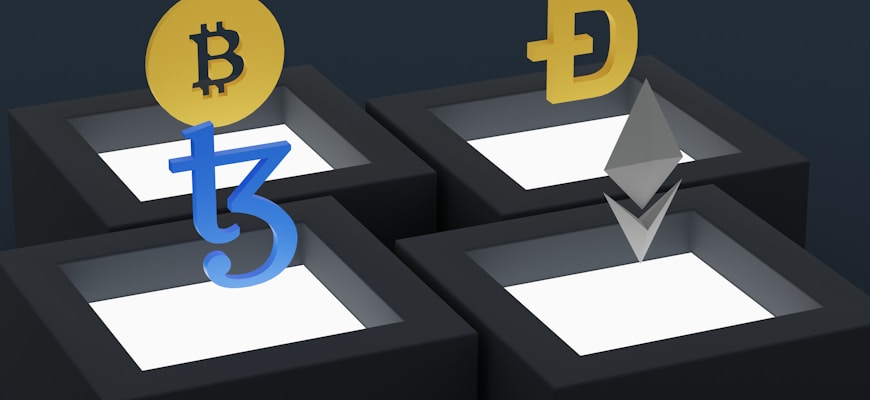The Difference Between Centralized and Decentralized Exchanges

- Understanding the concept of centralized exchanges
- Pros and cons of centralized exchanges
- Exploring the benefits of decentralized exchanges
- Security concerns in centralized exchanges
- Regulatory challenges for decentralized exchanges
- Comparison of liquidity in centralized and decentralized exchanges
Understanding the concept of centralized exchanges
Centralized exchanges are platforms where transactions are facilitated by a third party. These exchanges act as intermediaries between buyers and sellers, holding their funds and executing trades on their behalf. Centralized exchanges are often more user-friendly and offer a wide range of trading pairs compared to decentralized exchanges.
One of the key advantages of centralized exchanges is the liquidity they provide. Since these platforms have a large number of users, there is a higher chance of finding a counterparty for your trade quickly. Additionally, centralized exchanges often offer advanced trading features such as margin trading and futures contracts, which can attract more experienced traders.
However, centralized exchanges are also more susceptible to hacking and fraud compared to their decentralized counterparts. Since all user funds are held in a single location, they are a prime target for hackers. In the past, several centralized exchanges have been hacked, resulting in the loss of millions of dollars worth of cryptocurrencies.
Despite these risks, centralized exchanges remain popular among traders due to their ease of use and advanced trading features. It is important for users to weigh the pros and cons of centralized exchanges carefully before deciding to trade on these platforms.
Pros and cons of centralized exchanges
Centralized exchanges have their own set of advantages and disadvantages that should be considered before deciding to use them for trading cryptocurrencies.
- Pros of centralized exchanges:
- 1. User-friendly interface that makes trading easy for beginners.
- 2. Higher liquidity compared to decentralized exchanges, which means faster execution of trades.
- 3. Customer support is readily available for troubleshooting and dispute resolution.
- 4. Fiat currency support allows for direct deposits and withdrawals, making it easier to convert between cryptocurrencies and traditional money.
- 5. Advanced trading features such as margin trading and stop-loss orders are often available.
- Cons of centralized exchanges:
- 1. Centralized exchanges are vulnerable to hacking attacks, putting users’ funds at risk.
- 2. They require users to trust a third party with their funds, which goes against the principles of decentralization.
- 3. Lack of privacy as users are required to complete KYC verification to comply with regulations.
- 4. Limited coin offerings as centralized exchanges have strict listing policies that may exclude newer or less popular cryptocurrencies.
- 5. Centralized exchanges are subject to government regulations and can be shut down or restricted based on legal requirements.
Exploring the benefits of decentralized exchanges
Decentralized exchanges (DEX) offer a range of benefits for cryptocurrency traders and investors. One of the key advantages of DEX is enhanced security. Unlike centralized exchanges, which are vulnerable to hacking and theft, decentralized exchanges operate on a peer-to-peer network, reducing the risk of security breaches. Additionally, DEX allows users to retain control of their funds, eliminating the need to trust a third party with their assets.
Another benefit of decentralized exchanges is the increased privacy they offer. With DEX, users can trade cryptocurrencies without needing to provide personal information such as their name, address, or ID. This anonymity is attractive to many traders who value their privacy and want to avoid potential identity theft.
Furthermore, decentralized exchanges often have lower fees compared to their centralized counterparts. By cutting out the middleman, DEX can offer lower transaction fees and trading costs. This can result in significant savings for frequent traders who make multiple transactions on a regular basis.
In addition to security, privacy, and cost savings, decentralized exchanges also provide a more transparent trading environment. On DEX, all transactions are recorded on the blockchain, making it easy for users to verify trades and track their assets. This level of transparency can help build trust among traders and investors, fostering a more open and efficient marketplace.
Overall, decentralized exchanges offer a range of benefits that make them an attractive option for cryptocurrency enthusiasts. By prioritizing security, privacy, cost-effectiveness, and transparency, DEX provide a viable alternative to centralized exchanges for those looking to trade cryptocurrencies in a secure and efficient manner.
Security concerns in centralized exchanges
One of the main security concerns surrounding centralized exchanges is the fact that they are vulnerable to hacking attacks. Centralized exchanges store users’ funds and personal information in a single location, making them a prime target for cybercriminals. In the past, there have been numerous incidents where centralized exchanges have been hacked, resulting in the loss of millions of dollars worth of cryptocurrencies.
Another security concern with centralized exchanges is the issue of insider threats. Centralized exchanges are run by a small group of people who have access to a large amount of sensitive information. This opens up the possibility of employees or administrators abusing their power for personal gain. There have been cases where insiders have manipulated trades, stolen funds, or engaged in other unethical behavior.
Furthermore, centralized exchanges are subject to government regulations and can be shut down or seized by authorities at any time. This poses a risk to users who may have their funds frozen or confiscated without warning. In contrast, decentralized exchanges operate on a peer-to-peer basis without a central authority, making them immune to government interference.
In conclusion, while centralized exchanges offer convenience and liquidity, they come with significant security risks. Users should be aware of these risks and take precautions to protect their assets. Decentralized exchanges, on the other hand, provide a more secure and transparent trading environment, making them a popular choice for users who prioritize privacy and security.
Regulatory challenges for decentralized exchanges
One of the major challenges facing decentralized exchanges (DEXs) is navigating the regulatory landscape. Unlike centralized exchanges that are often subject to strict regulatory oversight, decentralized exchanges operate in a more decentralized and often anonymous manner, making it difficult for regulators to enforce compliance. This lack of oversight can lead to concerns about money laundering, fraud, and other illicit activities taking place on DEXs.
One key regulatory challenge for decentralized exchanges is the issue of know-your-customer (KYC) and anti-money laundering (AML) regulations. Centralized exchanges are typically required to collect and verify customer information to prevent illegal activities, such as money laundering. However, DEXs operate without a central authority, making it challenging to enforce these regulations effectively.
Another regulatory challenge for DEXs is the lack of clarity around jurisdictional issues. With decentralized exchanges being accessible to anyone with an internet connection, determining which laws and regulations apply can be a complex and murky process. This ambiguity can create legal risks for both users and operators of decentralized exchanges.
Furthermore, decentralized exchanges face challenges related to investor protection. Centralized exchanges often offer insurance funds and other protections to safeguard customer assets in the event of a hack or security breach. DEXs, on the other hand, may lack these protections, leaving users vulnerable to losing their funds without recourse.
In conclusion, the regulatory challenges facing decentralized exchanges are significant and complex. As the popularity of DEXs continues to grow, regulators will need to find new ways to address the unique challenges posed by these decentralized platforms while balancing innovation and investor protection.
Comparison of liquidity in centralized and decentralized exchanges
When comparing liquidity between centralized and decentralized exchanges, it is important to consider the differences in how they operate. Centralized exchanges typically have higher liquidity due to their larger user base and the ability to facilitate high-frequency trading. This means that traders can buy and sell assets more easily without experiencing significant price fluctuations.
On the other hand, decentralized exchanges often struggle with lower liquidity levels as they rely on peer-to-peer trading and do not have a central authority to facilitate transactions. This can lead to slower trade execution and wider spreads between buy and sell orders. However, decentralized exchanges are gaining popularity due to their focus on security and privacy, which appeals to users who are wary of centralized platforms.
Ultimately, the choice between a centralized or decentralized exchange will depend on individual preferences and trading goals. Centralized exchanges offer higher liquidity and faster trade execution, making them ideal for active traders. Decentralized exchanges, while facing challenges with liquidity, provide a more secure and private trading environment for users who prioritize these features.



